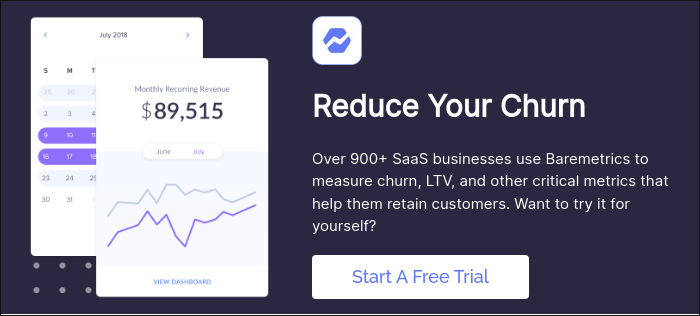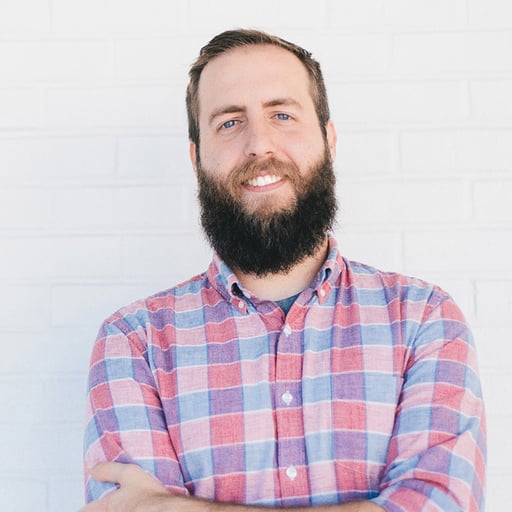Table of Contents

When building a startup, so much emphasis is put on “the product” or even “the customers”. Everything else takes a backseat. On some level, and at some points in a company’s lifecycle, this makes sense. Of course you’ll make sacrifices and you’ll have to work really hard and work really weird hours.
But eventually, you’ll have to stop. The downsides far outweigh the benefits and the damage done to you and your team can be detrimental. That’s what I’m writing about today. Managing the long term health of you and your team.
Starting the cycle
When you’re in the early days of your startup, your product naturally takes all of your focus. Without a product, you don’t have a company, right? You know it goes. Maybe you’re working on a new idea on nights and weekends, or you’ve got this idea and managed to raise a little money and you’ve got a small team together and you start working 60+ hours a week to get the first version out the door.
You put a pause on any good habits you’d previously formed. You stop exercising, your diet takes a hit since you just eat whatever takes up the least amount of time. Instead of 7-8 hours of sleep, you’re getting 4-6, on a good night. Your relationships get put on the back burner…you haven’t really talked to or hung out with friends for months.
You tell yourself, “this is just the sacrifice that’s needed to make this happen.” And on some level, you’re right. It does take a ton of work and sacrifice to make something out of nothing.
After doing this for a few months, you realize this probably isn’t sustainable but you promise yourself after you get the product launched that you’ll get back to those good habits.
Then, a few months after that you get your product launched! You start getting paying customers, lots of new feedback on how to improve the product, you get lots of great ideas of how to expand things. It’s all very exciting! You’ve got so much momentum, you can’t stop now!
If you didn’t take on funding before, maybe you decide to now. All that momentum has VCs interested and so you start taking meetings left and right. You go out for drinks every night trying to “make connections” and you’re booking flights as fast as you can to go take meetings with any VC that’ll give you time.
After a few months of this, you raise a seed round. It’s time to put those funds to use and hire! You bring on folks who are eager to get in early at a startup, you pay them just okay but give them a ton of equity and they’re okay with that, because they’re in it to win it. They share in your excitement and love the momentum you’ve got. There’s a buzz about all of it and it gives everyone at the company a high.
This cycle continues. The product keeps growing. The team keeps growing. Maybe even the rounds of VC funding keep growing as well. You’ve had this “startup buzz” going for two years and you’ve kind of become addicted to it. You have to keep feeding it. “Growth at all costs”, right?
But at some point, things start falling apart. Some of those early hires? They’re burnt out. Your culture? It’s kind of become toxic with everyone trying to “out work” each other, even if it’s subconscious.
You see this. You know it’s happening. But change is difficult and you’re afraid if you don’t keep all that momentum going, you’ll irreparably hurt the company. So you don’t make any changes and years later, you find the mental, physical and emotional health of you and your team is just…awful.
This is the cycle so many companies get stuck in. I’d go so far as to say every company experiences some part of this at some point in their history. The thing is, everyone knows this sort of thing isn’t sustainable. And like I mentioned earlier, of course there are sacrifices that have to be made, especially early on. It’s just part of the game.
The key, however, is to be intentional about staying out of the cycle. But how do you do that?
Our journey to focusing on team health
We’ve had just as many up’s and down’s as any other startup. We nearly ran out of money, the whole team had to take paycuts. I, and many others on our team, have worked absurdly late too many nights in a row.
But a little over a year ago, when I took my first real vacation in nearly two years, I realized how unsustainable it all was and I made sure we started actually putting in to practice things to keep our company healthy. I want us to be around or many years to come…not be forced to take some subpar acquisition offer because I’m so burnt out on it all.
I also want to be a positive example to my kids about building a business. I don’t want them to equate “building something” with “working all the time”. I want to model a healthy work ethic, and I want the folks our team to be able to show that to their kids as well.
Practical ways to focus on health
Getting out of the unhealthy work cycle isn’t just about working less. It’s also not just about individual health. It’s about both of those things, as well as team health.
Any of the perceived (and arguably false) loss in momentum from getting out of the overworked, product-first, growth-at-all-costs cycle is made up for with increases in both individual and team efficiency thanks to everyone being happier, healthier and working together better.
Here are some ways that we’ve been focusing on health as a company.
Minimum vacation
We realized quickly that the typical startup benefit of “unlimited” vacation actually meant nobody vacationed. Your team will take less time off, not more because there’s no defined boundaries so no one really knows if they’re overdoing it.
Instead, we have a “minimum” vacation policy. Each team member is expected to take at least 4 weeks off throughout the year with at least one week-or-longer vacation.
Our policy works well, with the average team member taking about 35 days off work each year.
Physical & mental health
This year, we’ve signed our team up for the Whole Life Challenge. For six weeks, us and our spouses will all challenge (and compete with) each other to form new healthy habits.
The Whole Life Challenge focuses on, wait for it, your whole life. Not just physical. Not just mental. The whole deal. Nutrition, exercise, sleep, hydration, mental wellbeing, etc.
As a company, everyone also gets a Fitbit or Jawbone, if they’d like.
Team psychology
My mom has worked in a counseling office for nearly 20 years. I’ve grown up around psychologists, psychiatrists and therapists for nearly all my life. Even had a brief stint as a psychology major in college! I’ve taken nearly every personality and character test you can imagine.
More recently, my wife started digging deep in to the enneagram (I’m a Type 7…along with Britney Spears and Miley Cyrus).
It was fascinating reading up on that and was so enlightening to get a better handle on how I approach situations as well as how I interact with other types.
I decided to have our whole team take the enneagram test to learn more not just about each individual on our team, but how each individual interacts with each other.
The Enneagram Institute makes it easy to do with a simple online test that each person takes. We compared our tests internally, but the results are private if you’d like to keep them that way.
So many people on our team have said the exercise helped them understand themselves more and really enjoyed doing it as a team.
Checking in regularly
We’ve been doing 1-on-1’s as a team for a few years. We do them every other week and they’re pretty informal. They’re a great way to make sure I’m communicating intentionally with each person on our team regularly and gives each person an opportunity to bring up something that they otherwise might have just kept to themselves.
To augment our 1-on-1’s, we use 15Five as a way to ask and record specific personal and company development questions every week. It’s got a built-in feature for manage 1-on-1’s as well that’s pretty handy.
Happiness stipend
For a few years now we’ve had what we call a “remote happiness stipend”. It’s $250 a month that each team member can use on literally whatever they want. The kicker is that it doesn’t rollover…you have to spend it.
“Why not just pay each person $250 more?”…because we’ve got lizard brains. If it’s rolled in your paycheck, it’ll just become part of your overall budget and you won’t really notice it.
By separating it, it forces you to actually go and treat yourself on things you otherwise wouldn’t use your paycheck for.
We also offer spouses of our team members a $100/mo stipend.
Health insurance
For our US-based team members we offer full coverage of health, dental and vision insurance, and then try to offer the equivalent to international employees.
This gets expensive quickly, but it’s a no-brainer once you can afford to offer it. The last thing you want is your team skimping on their physical health because they can’t afford it.
Books galore
Everyone at Baremetrics gets a Kindle and unlimited books. Reading, especially books outside of business and startups, has incredible benefits. It gives your mind a break your fast-paced habits and makes you slow down and only focus on that.
You can’t multi-task reading on a Kindle (or a physical book). You’re forced to be in that moment, which helps you absorb whatever you’re reading better.
We want everyone on our team to have varied interests and hobbies outside of “analytics software” and books are great way to foster that.
Team morale
A lot of the company, on-paper benefits are focused on each individual. But we wanted a way for the company benefits to be more communal. Enter Bonusly.
Bonusly is a way for your team to recognize each other and then redeem that recognition for various rewards (including gift cards and cash).
Each month every person on the team gets an “allowance” of points that they then use to give out to others on the team to recognize them for various things.
Everything from design work to fixing bugs to helping each other out with a difficult customer and everything in between, these are all things we’ll give each other “points” for (which the whole team sees).
It’s a fun way to foster a culture that consistently and intentionally recognizes the hard work each person is putting in.
What about you?
So many of the things we do were because we read about other companies doing similar things. I’d love to hear what you’re doing at your company to focus on the health and well-being of your team!



